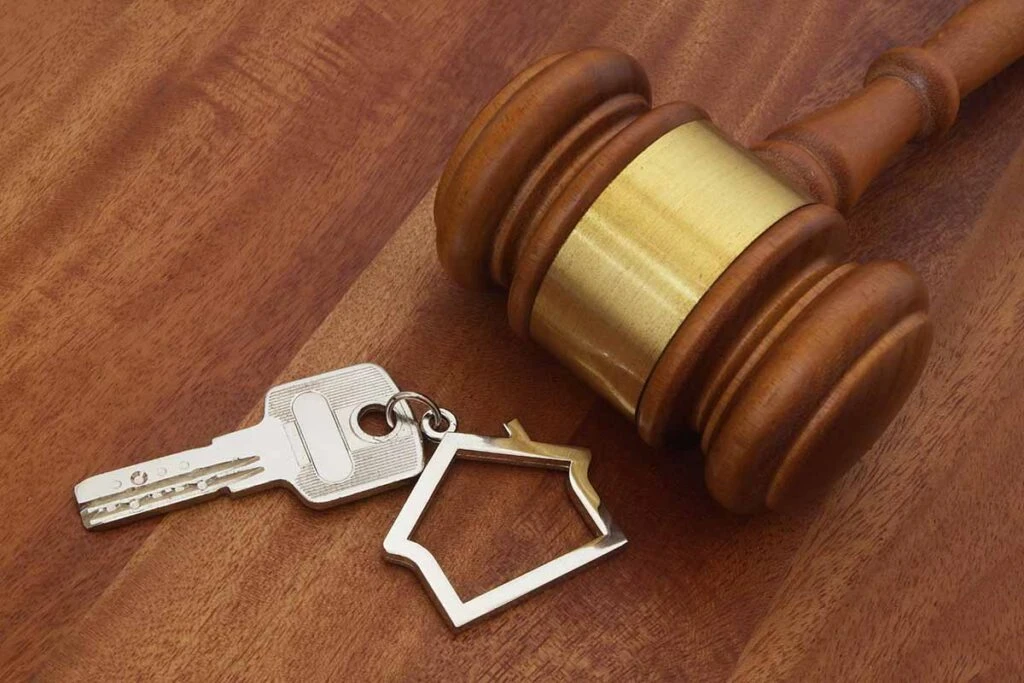Can You Get a Mortgage with Unfiled Tax Returns?

The majority of mortgage lenders require you to provide one to two years of tax returns, and if you haven’t filed, they will not be willing to work with you. There are a small handful of lenders who may be willing to process a loan without seeing your tax returns, but you should be careful as they often have higher interest rates or worse terms.
To improve your chances of getting a mortgage, you should file your old returns. If you set up payments on back taxes, the lender will consider those payments as part of your debt-to-income ratio. The rest of this post explains what you need to know if you’re trying to get a mortgage with unpaid taxes or unfiled tax returns. To get help now, contact us today.
Key takeaways
- It’s hard to get a mortgage without tax returns to prove your income.
- Alternative lenders may work with you – but at high rates and often worse terms.
- Filing returns and setting up payments can improve your chances of success.
Why do mortgage lenders require tax returns?
Mortgage lenders use your tax returns to verify how much you’re earning to ensure that you can repay the loan. If you don’t have a return, they may be willing to look at your W2s, bank statements, 1099 forms, and other financial documents. But generally, only a very small number of lenders will work with borrowers who have overdue tax returns.
Mortgages that require tax returns
FHA mortgages and all mortgages underwritten by Fannie Mae require you to provide a tax return. You may be able to get a VA loan or a loan through the Freddie Mac underwriting system without a tax return, but only if you can prove your income through W2s. If you are self-employed, all of these lenders require one to two years of tax returns.
With the exception of VA loans, which you can only obtain if you are a veteran or a qualifying family member of a veteran, the loans that don’t require mortgages have worse terms. For example, FHA loans generally only require about a 3% down payment. In contrast, Freddie Mac loans often require 20% downpayments.
Lenders who process mortgages without tax returns will view you as a riskier lender, and they will charge a higher interest rate than most other lenders. This means your home will cost a lot more in the long run.
No tax return mortgages
There are a few types of mortgages you may be able to get if you don’t have tax returns, including the following:
- Bank statement loans – Prove income and cash flow using bank statements. Often require a high downpayment.
- P&L loans – Prove business income with profit and loss reports rather than tax returns. Generally have higher interest rates and high down payments.
- Hard money loans – Approval based on the collateral of the underlying asset. Often used by investors or flippers rather than homeowners.
- No ratio loans – Lenders look at your credit score, employment history, and property value.
- Non-qualified (NQ) mortgages – Require a larger downpayment but allow borrowers to access funds without meeting traditional requirements.
- Subject to mortgages – You take over the existing owner’s mortgage and may also take on an additional loan directly from the owner to cover additional equity in the home.
- Owner carry mortgages – An entity that owns a property outright allows you to make payments directly to them.
Many of the above options are used by businesses or investors who want to get into a property. For an individual with unfiled returns, an owner carry may arguably be the most common alternative mortgage option.
What is an owner-carry mortgage?
You may be able to get an owner-carry mortgage without current returns. Sometimes called rent-to-own agreements, these mortgages are when the owner of the property lets you make payments directly to them on the property. Owner-carry mortgages can work well in some situations, but in others, they can be predatory and risky. You may want to consult with a real estate attorney before entering into an owner-carry mortgage.
Many owner-carry mortgages have higher interest rates, but they may also require you to make a balloon payment. For instance, you may make monthly payments for three to five years and then owe the remaining amount of the property’s value as a balloon payment. To cover the balloon, most people go to a traditional lender, and at that point, you will struggle to obtain financing with overdue tax returns.
Also, many of these mortgages have clauses that make it easier for the lender to foreclose than with a traditional loan. For example, many owner-carry mortgages are null and void if the buyer makes a single late payment. In contrast, you have to get months behind on a traditional mortgage before the lender can foreclose.
Why lenders look at your tax returns
When you take out a mortgage, the lender could be providing you with $100,000 to $1 million or more. They want to be sure that you can repay these funds, so they look closely at your financial situation.
Lenders use your tax returns to verify your income. They also look at your W2s or other income statements. Not having verifiable tax returns is a red flag that you might not be responsible enough to pay your mortgage. As indicated above, many lenders cannot even process a mortgage without a tax return. If you’re in this situation, you should get current on your returns.
What to do if you want to buy a home with unfiled returns
Some people simply apply for a mortgage, get qualified, and pick out their dream home. For most people, however, the process isn’t as easy. You may have to spend some time preparing your finances before you’re ready to apply. Don’t worry — you’re not alone, and you can get help with this process.
There are real estate agents who work with clients that have less-than-perfect credit. These agents give their clients advice about how to set up their finances so they can obtain a mortgage. In most cases, however, they focus on consumer liabilities like credit cards. To get help with unfiled tax returns, you should consult with a tax professional.
Filing past due tax returns or paying down liabilities can take some time, but these actions will put you in a stronger financial position. When you’re ready to apply, it will be easier to qualify for a low-down payment mortgage with a lower interest rate than it would be otherwise.
How to file tax returns before you get a mortgage
To catch up on your old returns, consider the following:
- How many years is the lender requiring? Many lenders only require the last year or two of returns.
- Does the IRS require more years of returns? If you file the last two years and owe a bill, the IRS will generally require you to file the last five or six years of returns before letting you set up a payment plan.
- Are there outstanding refunds? Even if you’re not required to file, you should file years where you are due a refund. You have three years from the due date to claim a refund.
- Do you need old income documents? If you’ve lost your income documents, you can obtain them from the IRS’s website or by calling the payers and requesting a copy.
- Do you need to reconstruct business records? If you are self-employed, a tax professional can help you reconstruct your records using bookkeeping statements, bank accounts, and similar documents.
Talk with a tax pro to get more guidance. They can generally help you through the process in a way that is much less painful than it may feel right now.
How to get a mortgage when you have a tax lien

In some cases, if you don’t file your returns, the IRS will file a substitute for return (SFR) on your behalf, and you will owe the assessed amount. Then, the IRS can place a tax lien on your property for the unpaid taxes. They can also place a tax lien on your property if you’ve filed your tax returns but haven’t paid the tax bill.
A tax lien is the IRS’s legal claim to your property, and it can make obtaining a mortgage challenging. You may want to contact a tax attorney to get the lien removed or to set up a payment plan with the IRS.
Sometimes, the tax liens stay in place while you’re making payments, and in this situation, you may need to get a subordination agreement from the IRS. This states that the IRS is second to the lien placed by the mortgage lender on your home. If the lender has to foreclose, this ensures that they get paid first and the IRS gets paid second.
Applying for a mortgage when you owe back taxes
If you’re making payments on the tax bill, you will need to show the mortgage lender your payment agreement. Most lenders will want to see a solid history of payments — if you’re just on month one or two, you may need to wait a bit before you can qualify for the mortgage. Then, they will consider the payments as part of your debt-to-income ratio – that is the same way they treat other debt payments, such as credit card payments.
Generally, you will not be able to get a mortgage if you have unpaid taxes that are not in a payment arrangement. Again, lenders want to be confident that you can repay the mortgage. They are hesitant to work with people who show signs of not meeting their financial obligations.
Get help with unfiled tax returns before buying a home
At The W Tax Group, we specialize in helping people who have unfiled tax returns and late taxes owed. Even if you haven’t filed in 10 years, we can help you with your overdue tax returns and back taxes so that you can get a mortgage and buy a home.
Don’t let being behind on your tax returns or taxes affect your dream of homeownership. Let us help you take care of your IRS and state tax issues so you can move forward and buy a home. To learn more, contact us today.

